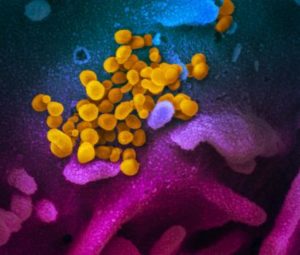 It is shocking that the same virus can result in the majority of people with COVID-19 having minimal or no symptoms, but others really suffering or even dying from it. We now know that after developing a COVID-19 infection, some people seem to be ill with symptoms for weeks and even months. This has been referred to as "long-COVID" or "long-haul COVID".
It is shocking that the same virus can result in the majority of people with COVID-19 having minimal or no symptoms, but others really suffering or even dying from it. We now know that after developing a COVID-19 infection, some people seem to be ill with symptoms for weeks and even months. This has been referred to as "long-COVID" or "long-haul COVID".
How frequently does this occur? The UK Office of National Statistics (ONS) is looking into this issue, and currently estimate that: 1) About 1 in 5 respondents testing positive for COVID-19 exhibit symptoms for a period of 5 weeks or longer, and 2) About 1 in 10 persons testing positive for COVID-19 exhibit symptoms for a period of 12 weeks or longer. (That's a lot!!!)
Using data from the ONS Infection Survey on hundreds of thousands of people in the UK, the report found that during the last week of November 2020 about 186,000 people in England were living with Covid-19 symptoms that had persisted for between five and 12 weeks. The most commonly reported symptom was fatigue, followed by a cough, headache, loss of taste, loss of smell, sore throat, fever, shortness of breath, nausea, diarrhea, and abdominal pain.

The CDC (Centers for Disease Control and Prevention) also discusses "long-term effects of COVID-19" on its web-site. They mention the most common long-term symptoms as: fatigue, shortness of breath, cough, joint pain, chest pain, but also list other symptoms such as "brain fog" (difficulty with thinking and concentration), intermittent fevers, headaches, and also less frequent more serious long-term complications (e.g. kidney injury, inflammation of the heart muscle).
The good news is that people generally report slow improvement over time. There are now popular support groups on Facebook (e,g, Survivor Corps, Covid-19 Support Group (have it/had it), Long Covid Support Group, and Long Haul Covid Fighters). Fiona Lowenstein started a Covid-19 support group (Body Politic Covid-19 support group) for people living with the virus. Medical centers that are treating long-term COVID symptoms (e.g. NYU Langone).
Another helpful source of information is Paul Garner, professor of infectious diseases at Liverpool School of Tropical Medicine. He has documented his battle with long-term Covid-19 symptoms in the British Medical Journal blog (also June 23 follow-up), and the need for "pacing" during recovery to prevent relapses. [twitter.com/paulgarnerwoof?lang=en ]
We are still in the early days of understanding COVID-19 and its effects. A year ago we were only aware of an emerging virus in China. And now it's global pandemic.
